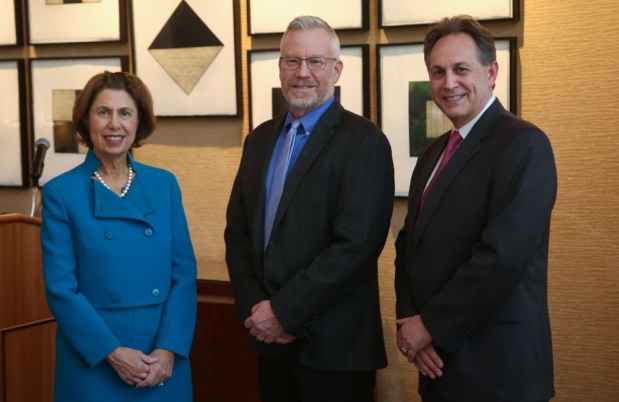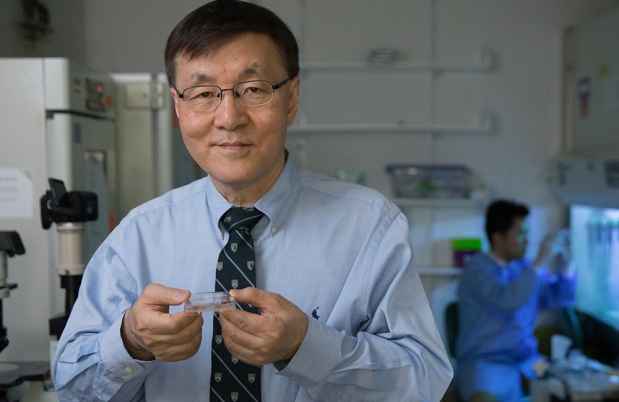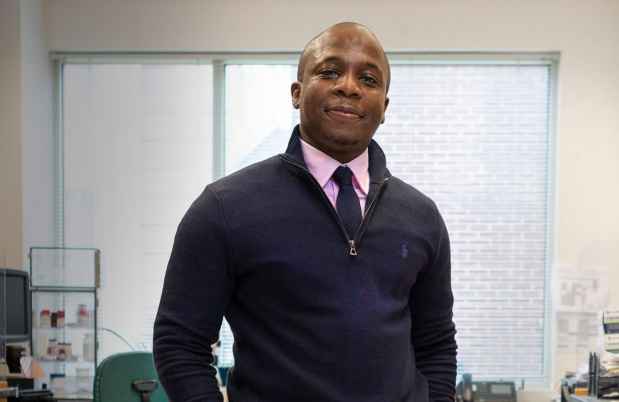
Penny Hallett, PhD
Co-Director, Neuroregeneration Research Institute
- Associate Professor of Psychiatry
Biography
Penny Hallett, PhD, is an associate professor of psychiatry at Harvard Medical School and co-director of the Neuroregeneration Research Institute (NRI). She received her PhD from the University of Manchester, UK, and completed post-doctoral studies at Massachusetts General Hospital, moving in 2006 to McLean Hospital to join the NRI. Dr. Hallett served as an editor for Molecular and Cellular Neuroscience from 2009-2017. Since 2017, Dr. Hallett has been an editorial review board member for Molecular and Cellular Neuroscience.
The NRI, founded in 1989 by Dr. Ole Isacson, is now co-led by Drs. Hallett and Isacson. Their lab is accelerating the treatment of Parkinson’s disease (PD) and other degenerative brain disorders. The NRI’s novel research team has a keen focus on improving individuals’ lives, and their work has been the basis for numerous innovations that are creating hope for patients and their families.
Dr. Hallett, along with Dr. Ole Isacson and the researchers in the Neuroregeneration Research Institute, work to move the field forward by approaching new treatments using novel findings in the modeling of synaptic and neuroplasticity responses. This effort includes new basic neuroscience models for neurodegenerative diseases, such as Parkinson’s disease (PD), as well as cognitive models for aging research and neuropsychiatrically linked diseases. Dr. Hallett’s research interests focus on understanding early neuronal dysfunction and degeneration in neurodegenerative diseases with a focus on PD, and testing therapeutic interventions using regenerative and neuroprotective strategies. Dr. Hallett and her staff are currently exploring viable therapies aimed at both protecting vulnerable neurons and replacing those destroyed by disease.
A long-standing area of interest in Dr. Hallett’s research is the regulation of synapses in PD and other neurodegenerative diseases. Dr. Hallett has used in vitro and in vivo modeling to demonstrate synaptic dysfunction in PD and in L-dopa induced dyskinesia, a debilitating side effect of chronic levodopa therapy in PD patients. Dr. Hallett has also used gene therapy approaches in rodent models of PD to improve synaptic function in neurons vulnerable to degeneration.

Dr. Hallett’s research also aims to understand neurodegenerative diseases, not only as central nervous system disorders, but also as systemic diseases involving the periphery, and also tests how aging processes can modulate cellular function and vulnerability. In particular, Dr. Hallett, together with Dr. Isacson, is focused on identifying how cell biological processes are disrupted in PD and aging. The overarching goal of their work is to identify novel biomarkers and neuroprotective strategies for PD, as well as other neurological disorders.
Recent work from the NRI showed that there is an elevation of particular lipids in the brain in Parkinson’s disease as well as in aging (the most significant risk factor for developing PD), and that sporadic PD can phenocopy genetic causes of the disease. This is a paradigm shift for understanding disease processes in PD. The lab’s work aims to understand how such lipid changes may make particular groups of neurons more vulnerable to degeneration, including vesicle transport abnormalities and neuroinflammation. This research suggests that lipid perturbations occur early in the disease process and may be more critical for driving neuropathology than proteinopathy.
There are no currently available neuroprotective therapies for neurodegenerative diseases, including PD, and cell therapy offers a realistic therapeutic opportunity to replace specific populations of cells where symptoms are defined by the loss of a specific cell type. The NRI uses iPSC-derived midbrain dopamine neurons to replace the dopamine neurons that have degenerated in PD, and in 2015, Dr. Hallett and Dr. Isacson published essential proof-of-concept data showing the efficacy and feasibility of using autologous iPSC-derived midbrain dopamine neuron transplantation in a PD preclinical model, which has real implications for potential translation to the clinic.
Dr. Hallett also participates in local and international research, education, and training programs within the areas of psychiatry, neurology, neuroregeneration, stem cell biology, and regenerative medicine.
- Deepika Dinesh, Senior Research Assistant
- Michele Moore, Research Assistant
- Teresia Osborn, PhD, Research Fellow
- Sandra Pohlman, Senior Administrator
- Jack Bergman, PhD, McLean Hospital
- Sabina Berretta, MD, McLean Hospital
- Anna-Liisa Brownell, PhD, Harvard Medical School
- Michelle Hastings, PhD, Rosalind Franklin University
- Frances Platt, PhD, University of Oxford
- Kerry J. Ressler, MD, PhD, McLean Hospital
- Andrew West, PhD, University of Birmingham, Alabama
Rocha EM, Smith GA, Park E, Cao H, Brown E, Hayes MA, Beagan J, McLean JR, Izen SC, Perez-Torres E, Hallett PJ, Isacson O. Glucocerebrosidase gene therapy prevents α-synucleinopathy of midbrain dopamine neurons. Neurobiology of Disease 2015;82:495-503.
Hallett PJ, Deleidi M, Astradsson A, Smith GA, Cooper O, Osborn T, Sundberg M, Moore MA, Perez-Torres E, Brownell A-L, Schumacher J, Spealman RD, Isacson O. Successful function of autologous iPSC-derived dopamine neurons following transplantation in a non-human primate model of Parkinson’s disease. Cell Stem Cell 2015;16:269-74.
Hallett PJ, Huebecker M, Brekk OR, Moloney EB, Rocha EM, Priestman DA, Platt FM, Isacson O. Glycosphingolipid levels and glucocerebrosidase activity are altered in normal aging of the mouse brain. Neurobiology of Aging 2018;67:189-200.
Education & Training
- 1998 BSc in Psychology and Neuroscience, University of Manchester, Manchester, UK
- 1999 MSc in Neuroscience, University of Manchester, Manchester, UK
- 2004 PhD, University of Manchester, UK
- 2002-2006 Research Fellowship in Neurology, Department of Neurology, Massachusetts General Hospital



